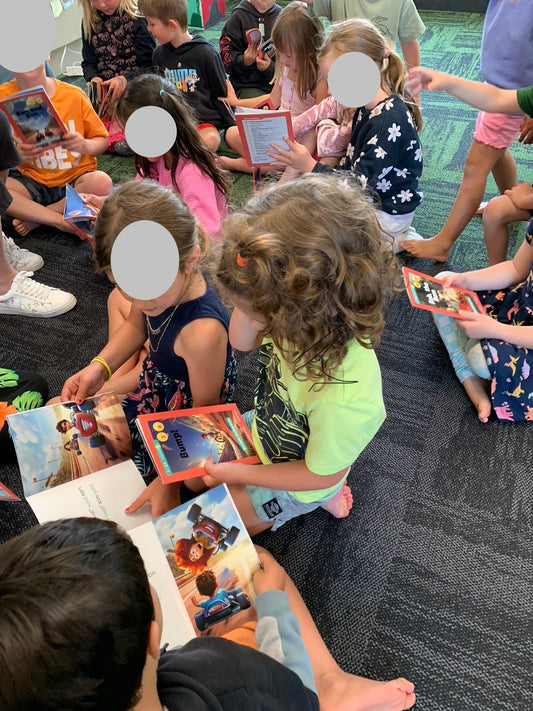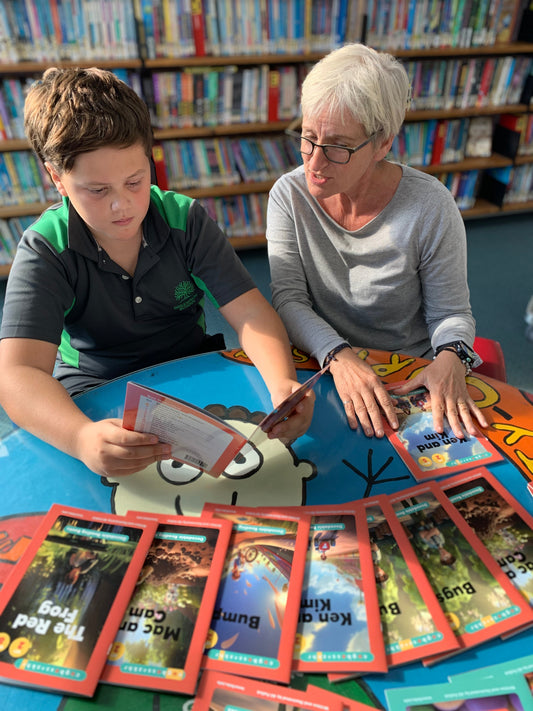3 Reasons Decodables Are the Necessary Bridge for ALL Readers!
For learners who are on their journey to become independent readers and those who process information differently—including those with Dyslexia, ADHD, or other learning differences—the process of learning to read can feel like trying to build a complex structure without instructions. Decodable books, grounded in the Science of Reading, are the proven, systematic tool that provides those essential, clear instructions.
Here are the three fundamental reasons why decodable books are a non-negotiable step for our emergent readers:
1. They Prevent the Guessing Habit
Some learners including neurodivergent learners often struggle with the sequential, rule-based nature of reading. When given predictable or leveled readers (which rely on picture clues and memorized sight words), these students develop a guessing strategy. This is because their brains are trying to make sense of words they haven't been explicitly taught to decode. Guessing is inefficient and masks any underlying reading difficulties.
Decodables are different. They are specifically designed to contain only the letter-sound patterns (phonics) a child has already been taught. This forces the learner to use the only strategy that works: decoding. This consistent, successful practice eliminates the reliance on guessing, replacing it with a reliable, repeatable skill.
2. They Build a Reliable Internal Reading Map
The goal of early literacy is to build automaticity—reading without effort. For learners with processing challenges, this process, known as Orthographic Mapping, needs an exceptionally clear pathway.
Decodable texts provide the necessary clarity and repetition:
-
Structure: They introduce skills in a systematic, cumulative sequence, like building blocks.
-
Consistency: The books offer multiple, successful encounters with the same phonics pattern.
This structured exposure helps the brain create a clear, reliable internal "map" (orthographic map) between the sounds (phonemes) and the letters (graphemes). When the pattern is reliable, the brain can more easily store the whole word for instant retrieval, which is the definition of a fluent reader.
3. They Offer Immediate, Confidence-Boosting Success
Some readers, especially those with learning differences, often experience a significant drop in reading confidence and motivation.
Decodable books are an intervention that is engineered for success. Because the text is fully aligned with their taught knowledge, the learner opens the book and can actually read it.
This immediate feeling of mastery and independence is a critical psychological bridge. It replaces the anxiety and frustration of guessing with a sense of accomplishment, encouraging them to keep trying and ultimately transforming their self-identity from "I can't read" to "I am a reader." 🌟
Blog posts
-

Igniting the Joy of Reading - Article written i...
Teacher Ali Fullick publishes engaging decodable readers to support structured literacy and inspire children with dyslexia worldwide.
Igniting the Joy of Reading - Article written i...
Teacher Ali Fullick publishes engaging decodable readers to support structured literacy and inspire children with dyslexia worldwide.
-

Dyslexic son inspires mother to help other kids...
"Inspired by her dyslexic son, Ali Fullick trained as a teacher and now helps other children thrive through SPELD NZ’s structured literacy support."
Dyslexic son inspires mother to help other kids...
"Inspired by her dyslexic son, Ali Fullick trained as a teacher and now helps other children thrive through SPELD NZ’s structured literacy support."


